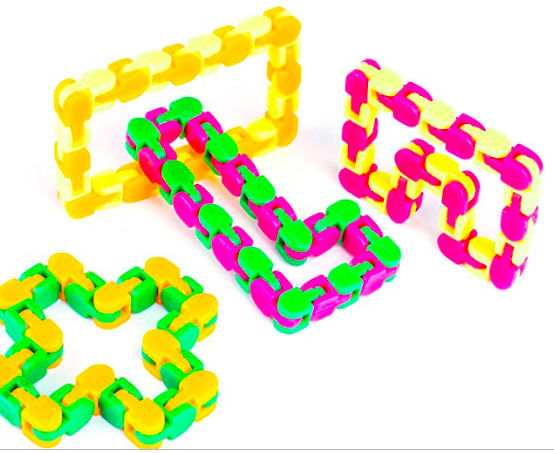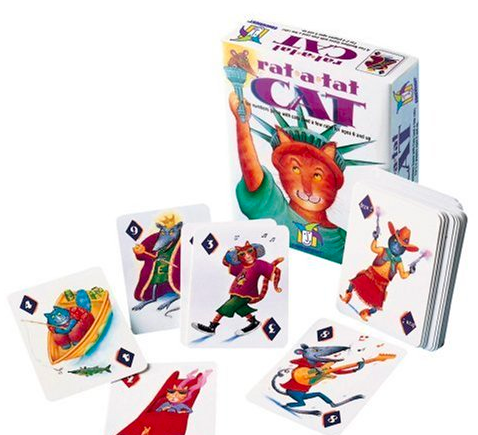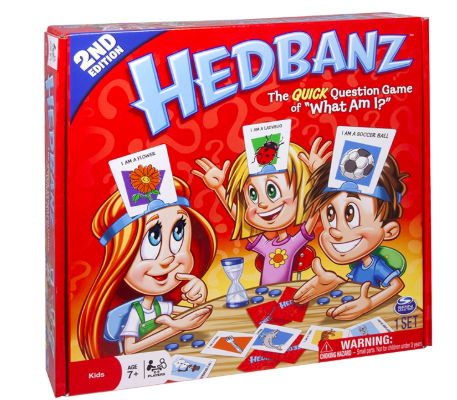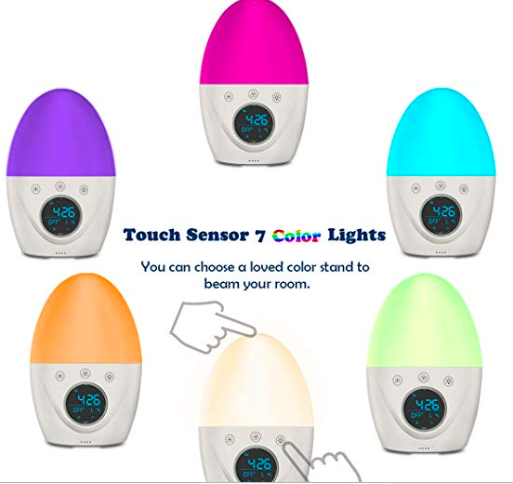Do you struggle with what to give your son or daughter with ADHD that doesn’t involve the latest version of Fortnight or the newest smartphone? You are not alone.  Thinking of good gifts, buying them in time for the holidays and keeping them out of sight challenges most parents. This year, I’m sharing some of my favorite gift items that foster fun, family connections and pique kids’ interest while simultaneously improving executive functioning skills. To make things easy, there are links to each item on Amazon but I also encourage you to check out stores near you and support your local economy. https://drsharonsaline.com/wp-content/uploads/2018/11/iStock-875268918.jpg Gifts to help moving hands and fidgeting bodies: Kids (and adults) with ADHD like to keep their hands active as a way to focus their attention. When the hands are busy, the background buzzing in the mind quiets down so people can concentrate. In my office, these are beloved: entire families will be using them from the time they enter the session until it’s over.
Thinking of good gifts, buying them in time for the holidays and keeping them out of sight challenges most parents. This year, I’m sharing some of my favorite gift items that foster fun, family connections and pique kids’ interest while simultaneously improving executive functioning skills. To make things easy, there are links to each item on Amazon but I also encourage you to check out stores near you and support your local economy. https://drsharonsaline.com/wp-content/uploads/2018/11/iStock-875268918.jpg Gifts to help moving hands and fidgeting bodies: Kids (and adults) with ADHD like to keep their hands active as a way to focus their attention. When the hands are busy, the background buzzing in the mind quiets down so people can concentrate. In my office, these are beloved: entire families will be using them from the time they enter the session until it’s over.
- The Infinity Cube: https://amzn.to/2Q628cE

- Neliblu Tracks Snap and Click Fidget toys: https://amzn.to/2Qthk2A

Games that the whole family can enjoy: Who doesn’t enjoy a good laugh and some good clean fun? No matter their age, most kids like to play games, even if they struggle with losing. Whether card games, board games or puzzles, these activities offer your family a chance to play together while helping your son or daughter with anything from reading social cues, using visual-spatial skills and even applying math. Don’t be discouraged by adolescent negativity: even teens like to participate in something amusing.
- CARD GAMES: Uno https://amzn.to/2TUY0dp, Rat-A-Tat-Cat https://amzn.to/2QoYQ3d
 and Monopoly Deal https://amzn.to/2Azk2JW .
and Monopoly Deal https://amzn.to/2Azk2JW . - BOARD GAMES: Yahtzee https://amzn.to/2RkOO0s, Headbanz https://amzn.to/2Sk4wsW
 and Sorry https://amzn.to/2RmgkKS
and Sorry https://amzn.to/2RmgkKS - MAKING THINGS: Jenga https://amzn.to/2KHQnTE
 , Ravensburger puzzles are sturdy and colorful https://amzn.to/2RiF7Q0 (work on these, take a break and come back to finish them later), Coloring books with good pencils and, of course, Legos.
, Ravensburger puzzles are sturdy and colorful https://amzn.to/2RiF7Q0 (work on these, take a break and come back to finish them later), Coloring books with good pencils and, of course, Legos.
https://drsharonsaline.com/wp-content/uploads/2018/11/iStock-845636024-e1543461205594.jpg Practical and Fun Gifts : Time Timers https://amzn.to/2DN9ASx, Watchminders (fun way to to help kids and adults with reminders and schedules without buying an expensive Apple watch) http://www.watchminder.com/, and FiveHome Alarm Clocks (for that extra alarm across the room so kids actually get out of bed) https://amzn.to/2PazMZ8 Any reading material: Whether kids like to read or listen to them, books, including comic books and graphic novels or magazines are a great gift to feed the imagination without electronics. Go with topics or authors they already like to further their interest.
Any reading material: Whether kids like to read or listen to them, books, including comic books and graphic novels or magazines are a great gift to feed the imagination without electronics. Go with topics or authors they already like to further their interest.  Good luck on your holiday shopping. Help yourself stay organized by making a list on your phone where you can’t lose it and enjoy crossing things off as you take care of them. Be sure to reward yourself along the way with a steaming cup of hot chocolate with whipped cream or a double cappuccino. You’ve earned it!
Good luck on your holiday shopping. Help yourself stay organized by making a list on your phone where you can’t lose it and enjoy crossing things off as you take care of them. Be sure to reward yourself along the way with a steaming cup of hot chocolate with whipped cream or a double cappuccino. You’ve earned it! 

 Here are a few steps that you can take to help your child or teen get a good night’s rest:
Here are a few steps that you can take to help your child or teen get a good night’s rest: 


